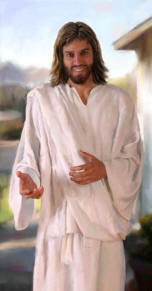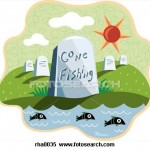Text: Matthew 21:33-39
Jesus said, “There was once a landowner who planted a vineyard, put a fence around it, dug a hole for the wine press, and built a watchtower. Then he rented the vineyard to tenants and left home on a trip. When the time came to gather the grapes, he sent his slaves to the tenants to receive his share of the harvest. The tenants grabbed his slaves, beat one, killed another, and stoned another. Again the man sent other slaves, more than the first time, and the tenants treated them the same way. Last of all he sent his son to them. “Surely they will respect my son,’ he said. But when the tenants saw the son, they said to themselves, “This is the owner’s son. Come on, let’s kill him, and we will get his property!’ So they grabbed him, threw him out of the vineyard, and killed him.
Lord, what do you want us to do?
 Even though the parable in today’s Gospel is story about judgement, it begins with a note of grace and generosity. A landowner planted a vineyard, improved it with a fence and watchtower. He set up everything nicely and now the property would start making money. He employed tenants to take care of his investment. They simply had to tend the plants, keep the weeds down, harvest the fruit, and make sure everything ran smoothly. The tenants had it made. They had a good job, security, steady income, job satisfaction, a roof over their heads, food on the table. Simply – this job was a gift.
Even though the parable in today’s Gospel is story about judgement, it begins with a note of grace and generosity. A landowner planted a vineyard, improved it with a fence and watchtower. He set up everything nicely and now the property would start making money. He employed tenants to take care of his investment. They simply had to tend the plants, keep the weeds down, harvest the fruit, and make sure everything ran smoothly. The tenants had it made. They had a good job, security, steady income, job satisfaction, a roof over their heads, food on the table. Simply – this job was a gift.
As time went on the workers started to think of the vineyard as theirs. They started to use words like “our vineyard, our crop, our tools, our money”. They resented the idea that the landowner should expect to get anything from their hard work. They shamefully bashed, and even killed, anyone whom the landowner sent to get what was his.
The owner finally sends his own son. You might well ask, “What kind of father is this?” He knows how ruthless and violent these people are. He should call in the police to deal with these guys once and for all. But the landowner is always optimistic – always hoping that the tenants will change.
It doesn’t surprise us to hear that the tenants kill the son too. The conclusion to Jesus’ story – the landowner has no rent, no honour, no servants and now no son and no vineyard.
Jesus asked his listeners what they thought the landowner should do now.
A bit of a silly question really! Kill those violent and wicked tenants. After all the landowner had been ever so patient and gracious, giving them chance after chance to realise that they weren’t the owners but tenants.
We know that Jesus was talking about the people of Israel in this parable and how they had rejected God by beating and killing the prophets, and soon will beat and kill his Son. This parable had a special application to the church of Jesus’ day but we would be blind if that is all we could see in this story. God is the owner but how often do we act as if we are the owners.
When you stop and think about it, we are tenants, not owners. In the broadest sense, everything we have is on loan from God. We sometimes imagine that we are owners.
“It’s my money and I can spend it as I please.”
“It’s my body and I have a right to do what I want with it.”
“It’s my life and I don’t need anyone to tell me how to live it.”
It’s clear from the very first pages of the Bible when God gave Adam and Eve the Garden of Eden, that they didn’t own it, they were tenants.
You are made and owned by God. Your life is not yours to own like you own a Holden or a Ford or a wide screen surround sound digital TV system and so you can do whatever you please with it. You’re God’s property. Life is a gift, just as the Holden or the Ford and wide screen surround sound digital TV system are gifts, to be used with God the Creator in mind.
We have a responsibility to use his gifts wisely and faithfully. And God gives his gifts in the hope of finding a harvest of fruit – fruit like honouring, loving and trusting God above anything else, and in our dealings with others – love, joy, peace, patience, kindness, goodness, faithfulness, humility and self-control.
Jesus was talking to the church of his day through this parable and so I want to focus on that special gift that God has given to us – the church. Like the landowner he has generously and graciously given us the church to care for and to reap a rich harvest.
But we are often guilty of acting as if we own the church. I don’t think it matters if we are talking about the church catholic – meaning the church throughout the world – or St Paul’s here on the local scene –
the church is the people of God, saved by Jesus’ death and resurrection,
the church is the fellowship of believers who are loved by our heavenly Father who speaks to us through the Scriptures and shows us his love through the water of baptism, the body and blood of Jesus in Holy Communion.
As God’s people we are given the Holy Spirit to encourage and support us every moment of every day. He keeps us together in Christ through forgiveness and reconciliation.
The church consists of people who have been chosen by God – as Peter says, “You are the chosen race, the king’s priests, the holy nation, God’s own people”. The church is a gift and our place in the church is a gift from God.
Since the church is God’s gift to us shouldn’t we be asking, “What does the owner want us to do? What does the Lord of the Church want us to do? As those who belong to the church through the gracious invitation of our Lord, what does he want us to do?” (Let’s not just think of the church as an organisation – like St Paul’s) but also of what does the Lord want us– the people of the church – you and me – to do).
Last week I emphasised the response of the individual to God’s love and concluded by asking, “Jesus, what do you want me to do?” But today our parable is leading us to ask a further question, “What do you want us, the people whom you have saved with the blood of your own Son, to do?” This is the question that we as church must ask. “Lord, what do you want us, your church, to do?”
When we ask questions like,
What does God want to do for this community through us, his church?
What does God wants us to do to help and encourage those who are facing tough times – whether they are the result of their own making or just happen because they are part of fallen humanity.
What does God want us to do to make worship meaningful across all generations?
What does God wants us to do so that all children are taught about the love Jesus has for them?
What does God wants us to do in order to make the best use of the properties and facilities that he has given us to further his work in this community?
Whatever other important questions arise, we always need to remind ourselves that this is not our church, this is God’s Church. The one who created the church, paid for it with the death of his Son. And so the first and vital question that needs to be asked is this, “What does the Lord of the church, the owner of the church, want us to do.” “How can we be the best tenants possible and serve our Master faithfully.”
And I, like you, want to know what the answers are to these questions. As individuals we come with all kinds of ideas and answers to the question, “What does God want to do through St Paul’s?” Each of us understands the mission and ministry of the church in different ways but in the end together as the fellowship of believers
we wrestle with what God wants us to do,
we argue with God about it,
we argue amongst ourselves (in a friendly way),
we are challenged to be church in our community,
and as individuals you and I may have to change our ideas and that means not always getting our own way.
If we, as church, still don’t know what God wants us to do we need to listen to him care fully again with open minds and pray all the more earnestly about it.
The church is God’s. We can take heart. Being the church is not all left up to us. We are God’s church, God’s people filled with the Holy Spirit to struggle with us and guide us as we seek ways to actively be the church in the world.
I said in the beginning that this parable of Jesus is a parable of judgement. Jesus concludes by saying, “And so I tell you, the Kingdom of God will be taken away from you and given to a people who will produce the proper fruits.” Was Jesus only talking about the church of his time? Could he also be saying this to us today? Is it possible that the church, the gospel, this gift may be taken from us and given to others?
As a family drove into town town, they passed by a large, impressive church.
“We’ll go to that church on Sunday,” the man said to his family.
On Sunday they got up, got dressed, and walked to this very impressive church building. When the family entered they saw a small group of people scattered around the empty pews mumbling their way through the service.
It was obvious from the magnificent church building that this had once been a thriving, lively congregation. What they once had, they no longer had. The church had stopped asking, “What does God want us to do?”
On the other hand there was a congregation made up of mostly elderly people and their numbers were slowly but surely diminishing. One elderly man said, “God put this church here for a reason a hundred years ago, what does God want us, his church, to do today. It’s clear that the reasons why this church was formed in the first place have changed. Does that mean God is finished with us as a congregation? If that sis the case then we should sell this valuable piece of real estate and worship elsewhere.”
This small group of older people wrestled and prayed about this. The church was located near a primary school. One elderly lady said, “Let’s have an after school activities time for kids. Lots of them go home to empty houses – let’s give them something to eat, crank up the sound system with some of their kind of music, and get some activities going”. They prayed about it. They knew it would be hard work. They didn’t like the music, but they were determined. They started with a small group of children, then some mothers came to help, then the Sunday School was restarted and a support group was formed to help families facing tough times.” That church was once again the church for that community. It all started with the simple question, “Lord, what do you want us to do?”
Jesus told this parable about the wicked tenants to bring the church of his day to repentance. It has the same effect on us today. When we read this we realise how often we forget to ask, “What would the owner want us to do”? We realise that so often we have wanted our own way and not sought what was the will of Lord of the Church.
We are here this morning because we have a Saviour who has died and risen for us. We have a Master who has given his life for us so that we can have forgiveness and eternal life. May God through his Holy Spirit continue to bless his church and give us an ever-greater vision of what he wants for the church and what it means for us to be the church, people bringing a rich and fruitful harvest for God. As great as the temptation always is to be a cosy and comfortable and to simply look after ourselves, let’s be open to the prompting and guiding of the Spirit to be a witnessing and serving church. May God richly bless and guide us as we ask, “Lord, what do you want us, your church, to do?”








